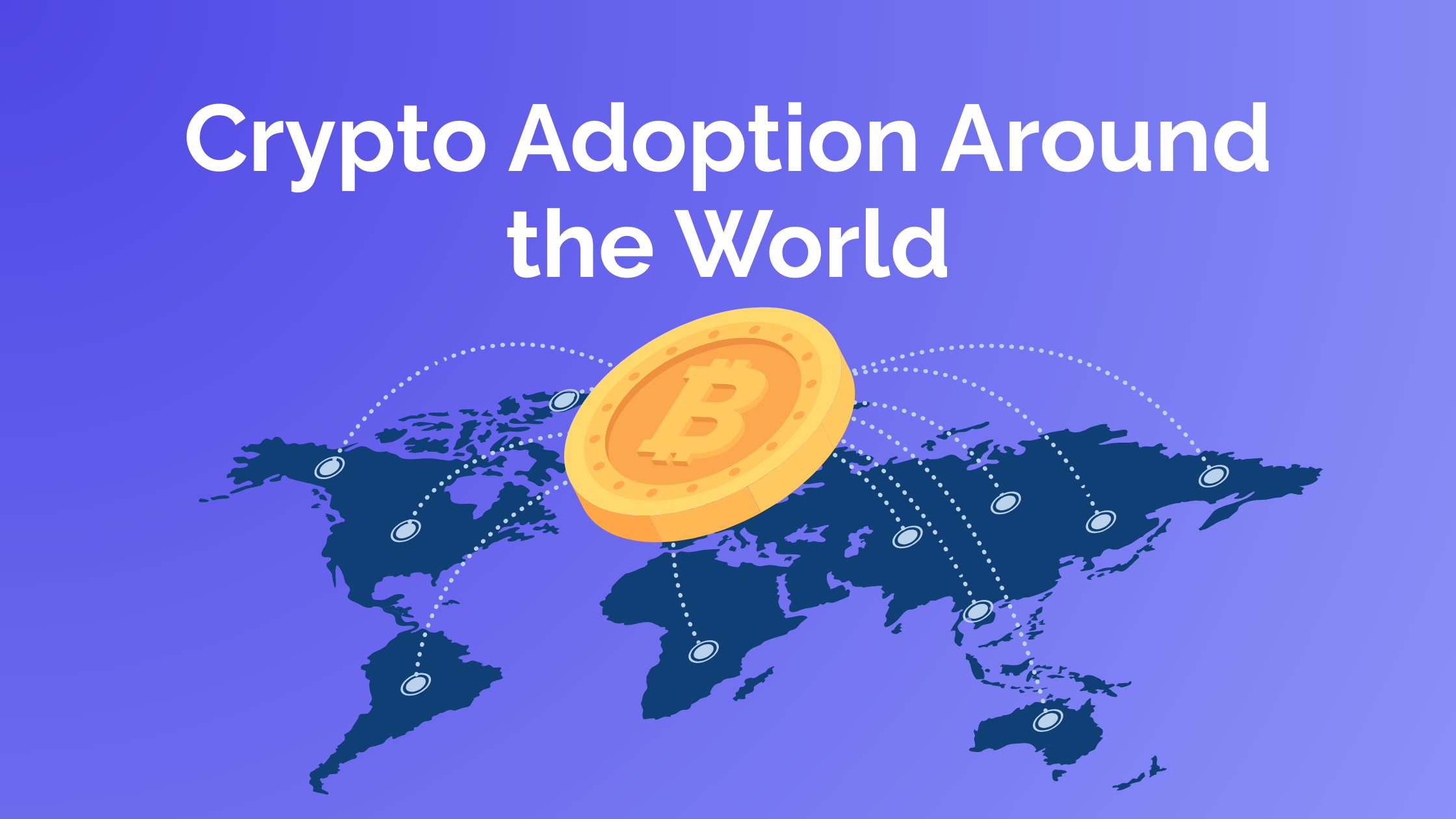Crypto Adoption Around the World: Who’s Leading the Digital Blockchain Revolution in 2025?

Cryptocurrency adoption is on the rise globally, reshaping how people invest, transact, and store value. But which countries are leading the charge, and what truly defines “crypto adoption”? Let’s break down the global landscape, spotlight the top crypto-adopting nations, and unpack the key metrics fueling this financial transformation.
What Does “Crypto Adoption” Really Mean?
Crypto adoption goes far beyond just holding Bitcoin or Ethereum. It’s a layered concept measured through several important metrics:
- On-chain transaction volume: The total crypto sent and received, adjusted for purchasing power parity (PPP) to ensure fair comparison across economies.
- Retail usage: Small-scale transactions made by individuals, showing real-world, daily usage.
- Peer-to-peer (P2P) trading volume: A critical indicator, especially in regions where traditional banking access is limited.
- User growth rate: The increase in unique wallet addresses or verified crypto users.
- Market capitalization: The total value of cryptocurrencies held within a country’s borders.
- Survey-based ownership: The percentage of the population that owns or uses digital assets.
These metrics offer a comprehensive view of how deeply crypto is woven into a country’s financial habits and infrastructure.
Top Crypto Adoption Countries in 2025
Here’s a look at the global leaders in crypto adoption this year, based on usage trends, market activity, and user growth:
|
Rank |
Country |
Key Highlights |
|
1 |
India |
Over 100 million users, leading in crypto ownership, and strong growth in both retail and P2P use. |
|
2 |
Nigeria |
22+ million users, vibrant P2P scene, high remittance demand, and strong youth adoption. |
|
3 |
Vietnam |
20+ million users, top spot in P2P volume, high awareness and practical usage. |
|
4 |
United States |
55+ million users, high transaction volumes, broad institutional and retail adoption. |
|
5 |
Indonesia |
12+ million users, surging adoption rates, and government-friendly crypto stance. |
|
6 |
Philippines |
14+ million users, integration with remittances and blockchain-based gaming. |
|
7 |
Ukraine |
Over 10% of the population using crypto, showcasing resilience and innovation through adoption. |
|
8 |
Brazil |
16+ million users, growing investment, supportive policies, and rising retail use. |
|
9 |
Pakistan |
26+ million users, strong P2P culture, rapid adoption despite policy uncertainties. |
|
10 |
El Salvador |
First country to legalize Bitcoin, offering tax perks and government-backed initiatives. |
|
11 |
United Arab Emirates (UAE) |
Crypto-friendly regulations, zero-tax zones, and a rising hub for blockchain ventures. |
Why Are These Countries Leading?
- Emerging Markets: Countries like India, Nigeria, and Vietnam are turning to crypto to bypass limited banking access, high remittance fees, and local inflation. P2P platforms and mobile wallets are key drivers.
- Regulatory Innovation: The UAE and El Salvador stand out for their forward-thinking legal frameworks, attracting startups, investors, and crypto exchanges.
- Digitally Native Populations: Nations with large, youthful, and mobile-first demographics tend to adopt new technologies faster, especially when those technologies offer financial empowerment.
- Balanced Ecosystems: Countries like the U.S. and Brazil benefit from a mix of institutional capital, venture funding, and rising retail investor interest.
Key Metrics That Define Crypto Adoption
|
Metric |
What It Measures |
Why It Matters |
|
On-chain value (PPP-adjusted) |
Total crypto transferred, adjusted for local purchasing power |
Allows fair cross-country comparison |
|
Retail transaction volume |
Small transactions by individuals |
Reflects practical, daily use of crypto |
|
P2P trading volume |
Crypto traded directly between users |
Crucial in underbanked and mobile-first markets |
|
User growth rate |
Rise in crypto wallet users |
Shows pace of adoption and spreading interest |
|
Market capitalization |
Total national crypto holdings |
Indicates investment levels and financial impact |
|
Survey-based ownership |
Share of population using crypto |
A clear indicator of grassroots adoption |
The Road Ahead
With clearer regulations and innovative technologies emerging, crypto adoption is set to expand further in 2025 and beyond. Whether it’s out of necessity, opportunity, or innovation, nations across Asia, Africa, and Latin America are helping shape the next chapter in digital finance.
Download and experience Tokeo on Android and iPhone here.
